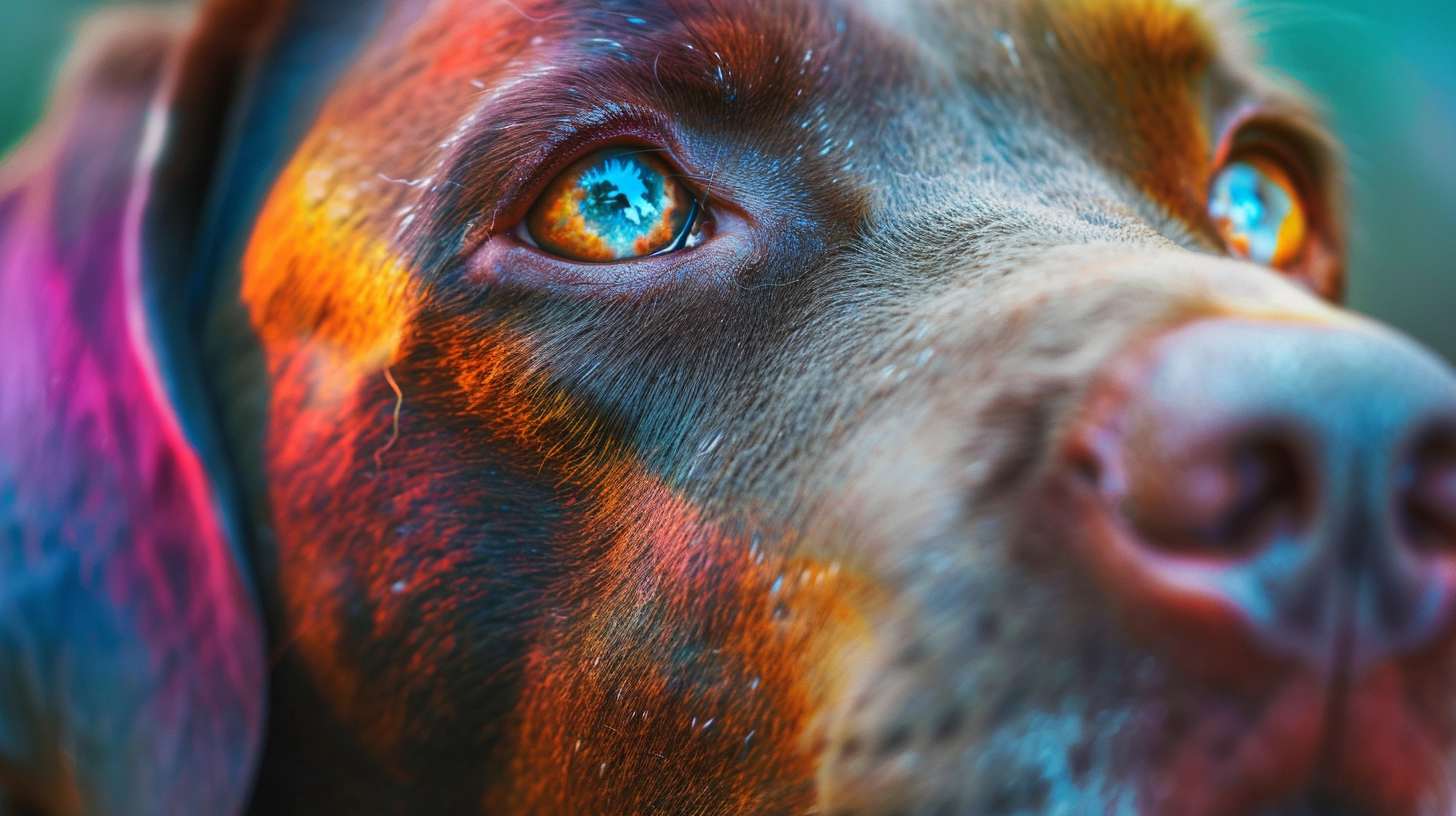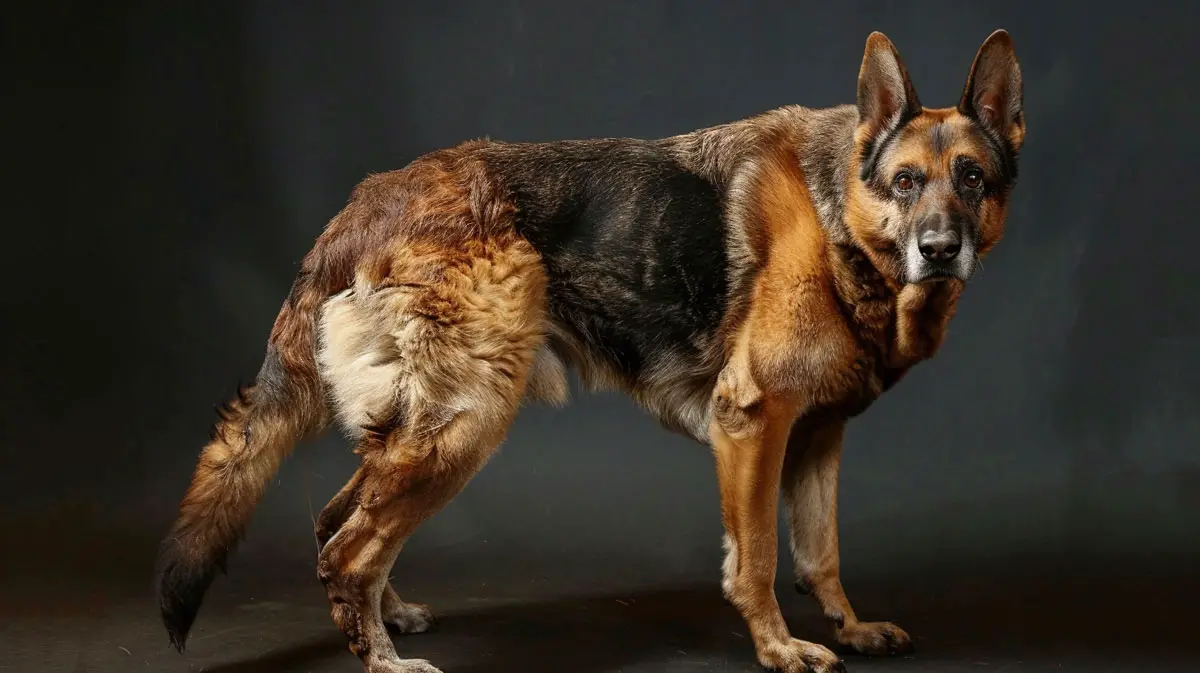Did you know that Dachshunds are known for their unique look and fun personalities? These pups may have short legs, but they deeply touch the hearts of dog fans worldwide. If you own a Dachshund or are thinking about getting one, caring for them is key. They need the right care to live happily and healthily. In this guide, you’ll get all the tips you need to be the best Dachshund owner.
Key Takeaways:
- Understanding the Dachshund breed’s history and personality traits is crucial for effective care and training.
- Supplements can aid in maintaining Dachshunds’ joint, skin, digestive, and weight health.
- A balanced and nutritious diet is essential to support the overall well-being of Dachshunds.
- Regular exercise and physical activity are important for keeping Dachshunds fit and mentally stimulated.
- Positive reinforcement training methods can help address the Dachshund’s stubbornness and ensure obedience.
History and Personality of a Dachshund
Dachshunds, also known as “wiener dogs” or “sausage dogs,” have an interesting history. They have traits that make them loved by many dog fans. Let’s explore the origins, behavior, and character of these endearing dogs.
The Dachshund’s Origins
The history of Dachshunds goes back to 15th century Germany. They were hunting dogs. The name “Dachshund” means “badger dog” in German, showing their hunting role. These brave dogs chased and dug out animals like rabbits and badgers from their burrows.
Dachshund Behavior and Temperament
Dachshunds are known for being independent and sometimes stubborn. They have a strong hunting instinct, which can make them chase other animals. But, with early training and socializing, they can be friendly and social pets.
Despite their need for independence, Dachshunds are very loyal and loving towards their families. They create deep bonds and like to join in family activities. This makes them great companions and lapdogs.
Characteristics that Set Dachshunds Apart
Dachshunds have a special body shape. They have a long spine and short legs. This body shape helps them get into tight spaces easily, making them good hunters. But, their long spine can cause back problems.
These energetic dogs are alert and smart. They learn quickly but like to make their own decisions. Because of their smarts and independence, training them can be a bit hard. It needs consistent, kind teaching.
Fun fact: Dachshunds come in two sizes: standard and miniature. Standard Dachshunds weigh between 16 and 32 pounds, while miniature ones are usually under 11 pounds.
Dachshunds are also famous for their loud barks. Their barks were meant to alert their human hunting pals. This can be helpful, but it’s key to teach them when barking is okay and when it’s too much.
In summary, the special history, behavior, and charm of Dachshunds make them stand out. Knowing these traits helps owners give the right training, socializing, and care. This leads to a joyful and satisfying life with these unique dogs.
Best Supplements for Dachshund Health
Dachshunds often face health challenges like joint and spine issues. They also can get too heavy. So, giving them the right supplements is key for their health.
Dachshund Joint Health
Dachshunds’ unique build makes them prone to joint problems. Adding glucosamine and chondroitin to their diet helps. These help keep their joints healthy and may prevent conditions such as arthritis.
Dachshund Skin Health
Skin issues, including allergies and dryness, are common in Dachshunds. Supplements rich in omega-3 fatty acids are beneficial. They help fight inflammation, keep the skin moist, and improve coat shine.
Dachshund Digestive Health
Dachshunds have sensitive stomachs, which leads to digestive problems. Probiotic supplements are helpful for them. These probiotics support a healthy gut, aid digestion, and can ease stomach issues.
Dachshund Weight Management
Obesity is a risk for Dachshunds, leading to more health problems. Working with a vet and using weight management supplements can help. These supplements aid in controlling hunger and keeping a healthy weight.
Choosing the right supplements for your Dachshund is vital. They support the dog’s health and happiness. Always talk to your vet to make sure the supplements are right for your dog.
Nutrition for Dachshunds
Proper nutrition is key for Dachshunds. A balanced diet helps keep them healthy and happy. It should meet their unique needs.
Choose high-quality dog food meant for Dachshunds. It should have lean proteins like chicken or turkey. Also, add fruits, veggies, and whole grains.
Dachshunds can easily get overweight. It’s vital to have a feeding schedule and watch their food amount. Talk to a vet about the right portion sizes for your pet’s age, weight, and activity.
Always give them fresh water. Steer clear of foods that could hurt them like chocolate, grapes, or onions. These can be deadly to dogs.
A well-balanced diet is vital for your Dachshund. It helps them live a long, healthy life.
The Importance of Nutrition
“A balanced diet is crucial for a Dachshund’s health. The right nutrients support growth, maintain weight, and improve health.”
| Lean Proteins | Fruits and Vegetables | Whole Grains |
|---|---|---|
| Chicken | Apples | Brown Rice |
| Turkey | Carrots | Oats |
| Fish | Sweet Potatoes | Quinoa |
Add these foods to your Dachshund’s diet for vital vitamins and minerals. They need these to be strong and healthy.
Every Dachshund is different, so their diet needs may change. Work with a vet to create a diet plan. This plan can address any health issues or diet needs they might have.
Exercise and Physical Activity for Dachshunds
Dachshunds might have tiny legs but they need regular exercise to stay healthy. Daily walks provide them with the exercise and fun they need. These walks let them see new things and burn off energy.
“Regular exercise is key for Dachshunds to avoid getting too heavy. Being overweight can cause health problems,” points out Dr. Emily Thompson, a vet who works with small dogs.
Puppy Dachshunds need short 15-20 minute walks. This keeps them from getting too tired. Older dogs can handle 30-45 minute walks. But, it’s key to remember that Dachshunds can hurt their backs easily. So, we should avoid any rough play that could harm them.
“We should keep their workouts easy on the body,” Dr. Thompson suggests. “So, no jumping or climbing stairs. Pick gentle exercises that won’t hurt their backs,” she recommends.
Here’s how to make sure your Dachshund stays happy and healthy:
- Take your Dachshund for walks regularly at a nice, easy pace.
- Use puzzle toys or treats in toys to keep their brains busy.
- When it’s raining or cold, play games like hide-and-seek or fetch inside.
- Swimming is a good, soft workout for them.
- Meet up with other Dachshunds or friendly dogs for play and exercise.
Gentle exercises for Dachshunds:
| Exercise | Description |
|---|---|
| Walks | Take daily walks in the neighborhood or park for exercise and fun. |
| Stairs | Avoid lots of stairs to protect their backs. Use ramps if you can. |
| Treadmill | A treadmill can be a good choice for exercise indoors when it’s raining or cold. |
| Hide-and-seek | Hide treats in the house for your Dachshund to find. It’s fun and keeps them moving. |
Always talk to your vet about your Dachshund’s exercise needs. This depends on their age, health, and what they like. By giving them regular, safe exercise, you’ll help them live a joyful and healthy life.
Dachshund Training Tips
Training a Dachshund can be fun yet challenging. These dogs are smart but also stubborn. With patience and the right techniques, you can teach them well.
Use positive reinforcement to train your Dachshund. Rewards and praise make them eager to learn. Keep training sessions short and focus on one thing at a time. This way, your dog won’t get overwhelmed.
Basic Obedience Training
Start with simple commands like “sit,” “stay,” and “come.” Use treats or toys as rewards for following commands. This encourages them to repeat good behaviors.
“Sit” Command:
- Hold a treat close to your Dachshund’s nose, then raise your hand above their head.
- As they follow the treat, they will sit down.
- When they sit, say “sit” and give the treat and praise.
Socialization is Key
Socializing your Dachshund is crucial. It makes them confident around others. Early socialization means exposing them to different settings and sounds.
Introduce them to new places, people, and animals gently. As they become more comfortable, gradually increase their exposure. This reduces fear and makes them friendlier.
Professional Training
If training gets tough, consider professional help. A skilled trainer can offer specific advice and training plans for your Dachshund.
Training takes patience and love. Celebrate every success and understand your Dachshund’s personality. Over time, you’ll see your Dachshund become a well-behaved, joyful family member.
Dachshund Health Issues and Care
We all cherish our Dachshunds. But, it’s vital to know the health problems they could face. By learning about these issues, you can help your pet live a long, happy life.
Common Health Issues
Dachshunds may face certain health issues, like:
- Disc problems: Their long bodies and short legs make Dachshunds prone to back issues. Avoid strain on their backs and provide proper support to prevent these problems.
- Obesity: Dachshunds love to eat and can get overweight if not careful. A balanced diet and regular walks help keep their weight in check.
- Skin conditions: Skin issues such as allergies and dryness can affect Dachshunds. Regular grooming helps remove irritants and keeps their skin healthy.
Veterinary Check-ups and Vaccinations
Regular vet visits are crucial for your Dachshund’s health. The vet can do exams, give shots, and offer care tips.

Grooming and Dental Care
Grooming is key for your Dachshund’s health. Brushing removes hair and prevents tangles. Trim nails often and don’t neglect dental care to avoid disease.
“Regular grooming keeps your Dachshund looking and feeling their best. It’s a great opportunity to bond with your pup and ensure their comfort.”
Remember to check their ears for infections and clean them when needed. If unsure about grooming, seek advice from a professional groomer.
Dachshund Potty Training Tips
Potty training your Dachshund is essential. You’ll need consistency, patience, and positive reinforcement. Here are some tips to help:
- Establish a routine: A consistent schedule for bathroom breaks is key. Take them outside after meals, naps, and playtime.
- Use crate training: Crate training helps your Dachshund hold their bladder. Ensure the crate is big enough for them to move comfortably. Never use the crate to punish them.
- Positive reinforcement: Reward your Dachshund with praise, treats, or toys for going outside. This encourages them to keep using the potty area.
- Supervision: Watch your Dachshund closely at the start. This way, you can prevent indoor accidents and lead them outside when needed.
- Setbacks are normal: Training takes time, and setbacks happen. Stay patient and avoid punishment. This might scare them and slow their learning.
Each Dachshund learns at their own pace. Be patient, stay positive, and celebrate their progress. With your support, they’ll learn potty habits quickly.
Dachshund Behavioral Issues and Solutions
Dachshunds are lovable, making great companions. However, they can show behaviors like anxiety and aggression. We’ll look at causes and how to solve these issues.
Separation Anxiety in Dachshunds
Dachshund separation anxiety happens when they get upset being alone. Signs include too much barking, destroying things, and indoor accidents.
To help them, introduce alone time slowly. Make a cozy spot with their toys and blankets. Give them puzzle toys to keep their minds busy.
Dealing with Aggression in Dachshunds
Dachshund aggression might be shown to animals or strangers. Addressing this ensures everyone’s safety. It comes from fear, protecting their space, or not meeting lots of people and pets early on.
To handle aggression, socialize them early. Let them meet different people, pets, and places. Use treats and praise to encourage good behavior.
“Training and socialization are key in addressing behavioral issues in Dachshunds. With patience, consistency, and positive reinforcement, you can help your Dachshund overcome their challenges and become a well-behaved companion.”
If problems don’t improve, considering a pro might be wise. A certified dog trainer or behaviorist can offer specific advice.
Tackling behavioral issues takes time, steady effort, and kindness. Proper training and support lead to a stronger bond with your pet.
| Behavioral Issue | Symptoms | Solutions |
|---|---|---|
| Separation Anxiety | Excessive barking, destructive chewing, indoor accidents | – Gradual desensitization and counterconditioning – Providing a safe space with familiar items – Mental stimulation through toys and puzzles |
| Aggression | Growling, biting, lunging towards other animals or people | – Early socialization – Positive reinforcement training techniques – Seeking professional help if needed |

Dachshund Puppy Care Guide
Getting a Dachshund puppy is very exciting, but it’s also a big responsibility. To keep your puppy happy and healthy, you need to make your home safe, set a good routine, and start training and socializing them early.
Puppy-Proofing Your Home
Dachshund puppies are full of energy and very curious. You need to make your home safe for them. Secure things like electrical cords and toxic plants. Put away anything small enough to be swallowed. Use baby gates to keep them out of certain areas and keep dangerous substances and medicines locked up.
Establishing a Routine
Having a regular schedule is very important for Dachshund puppies. Make sure they eat, exercise, and sleep at the same times every day. This helps with their digestion and keeps them from eating too much. It also gives them the physical and mental activity they need. A good sleep schedule supports their development and helps avoid behavior problems.
Socialization and Training
It’s very important to start socializing your Dachshund puppy early. Introduce them to different people, animals, and places. This will help them become confident and well-behaved adults. Begin training early too, using treats and praise to reward good behavior. Teach them basic commands and how to behave on a leash.
In the words of Cesar Millan, renowned dog behaviorist, “Socialization is the key to raising a well-behaved and balanced Dachshund.”
Regular Veterinary Check-Ups and Vaccinations
Regular vet visits and vaccinations are key to your puppy’s health. Work with your vet to set up a vaccination plan to protect against common diseases. Vet check-ups also let your vet track your puppy’s growth and catch any health issues early. They can also advise on preventive care.
A Nutritious Diet
Feeding your Dachshund puppy the right food is crucial for their growth. Pick a high-quality food made for small breeds. Feed them the right amount for their age and size. Talk to your vet about the best food for your puppy’s needs and any food sensitivities they might have.
Tip: Opt for slow feeder bowls or puzzle toys to prevent your Dachshund puppy from eating too quickly, as it can lead to digestive issues.
By sticking to these care tips, your Dachshund puppy will grow up to be a joyful and well-behaved family member. Remember, being patient, consistent, and loving is key to building a strong relationship with your puppy and giving them a great start in life.
Conclusion
Taking care of a Dachshund needs commitment, patience, and love. By following the tips and advice in this guide, you can make sure your furry friend is happy and healthy.
Make their well-being a priority. Provide them with good food, lots of exercise, and consistent training. Remember to socialize them well. Also, see a vet when there are health problems.
Being a Dachshund owner is very rewarding. It’s full of cuddles, play, and special moments. Enjoy the journey, the amazing adventures, and the special bond you’ll have with your Dachshund.





Leave a Reply